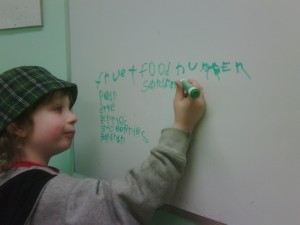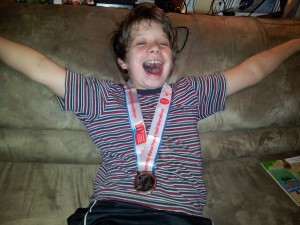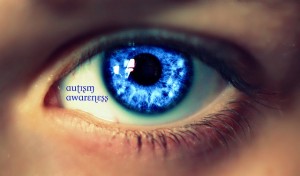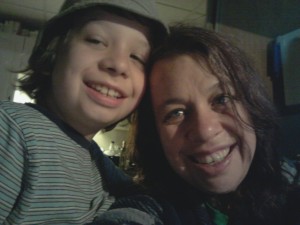Yesterday, I shared my family’s recent success at securing a good Grade 7/8 program for my son, who has autism. The short version of the story is that my husband and I knew immediately that the program George was slated for would be very bad, not only for him but for his classmates. And so we went to bat for the kids. Over a period of seven months, we had meetings and phone calls with all kinds of people in the school board. A couple of weeks ago, George’s principal called to tell us that a Grade 7/8 program was being introduced in his current school. The news could not have been better. We would have been OK with a good program at any school, but George’s current school, which is fantastic in so many ways, was definitely the prize we were hoping for.
George was diagnosed with autism seven years ago. In that time, I have learned a lot about what works and what doesn’t work when it comes to fighting in his corner. Here are some of the big ones.
1. Know what your child’s rights are. Don’t go into any meeting with your child’s teacher, principal or any school board representative without having a clear idea of what you are entitled to ask for on behalf of your child. A few pointers: in Ontario, you cannot be forced to homeschool, you cannot be forced to relocate and you cannot be forced to accept a shortened school day. Your child is entitled to an education in a public school in his or her neighbourhood, with the same number of instructional hours as any other student, regardless of what his or her abilities or disabilities are.
2. Have a clear idea of your desired outcome. This is not always as easy as it sounds. Sometimes we simply want things to be different, or better. You have to ask yourself what that looks like. Perhaps you love the teacher but feel that extra assistance is needed. Maybe you simply want clearer IEP goals or better support during transitions. Or maybe you need a completely new direction for your child. Whatever it is, you have to know what you are aiming for. Ask yourself what the outcome would be if you got to be in charge of all the decisions.
3. But be prepared for compromise. This means knowing what you are prepared to settle for. In my case, first prize was a new program for George in his current school. There was always a chance that that wouldn’t happen, so we were prepared to settle for a good program at a different school. Aim for what you are really, really hoping for, but have some acceptable alternative scenarios kicking around in your mind as well.
4. And know what you will not accept. Sometimes, you may be offered a “solution” that just doesn’t work. You are not compelled to accept anything just because you’re told it’s the only option. What we were not prepared to accept was the program George was originally supposed to go to. We made that crystal clear early on in the discussions, and we did not budge. Negotiation is always key in discussions like this, but you have to be clear on the points that you will absolutely not move on.
5. Don’t go in looking for a fight. If you walk into the room assuming that the people you are meeting with are on the same side as you, the entire tone of the meeting can swing in your favour. The thing is, most of the time they will be on the same side as you. Advocating for your child does not always have to be a battle. Principals and teachers are caught between a rock and a hard place. On the one hand, they genuinely care (or they should) about the best interests of your child. On the other hand, they have to operate within rules and procedures that they cannot control. Show understanding towards them, and more often than not, they will show understanding towards you.
6. But don’t let anyone intimidate you. Look, from time to time you will encounter ass-hats. That’s just life. Smile serenely, know that if someone is being an ass-hat to you, they’re probably an ass-hat to everyone, and identify who your allies are. If there’s no ally in the room, politely tell them you need to reschedule the meeting, and go out and find an ally. You can bring anyone you like. You can even hire an advocacy consultant to accompany you. We were fortunate in that George’s principal was firmly on our side right from the start.
7. Remember that the special education community is small. No matter how frustrating the process is, no matter how badly you want to scream and swear, try your best to take the high road. People in the special education field tend to crop up again and again in different capacities. The person sitting opposite you today, whose head you badly want to rip off, could be in a position to help you three years from now. Don’t let anyone walk all over you, but keep your cool and stay polite.
8. Be persistent. If a meeting doesn’t yield acceptable results, call another one. If you agree on a course of action but something isn’t working, go back and see if something can be adjusted or tweaked. You are never obligated to just accept something for your child that is not working.
This is an original post by Kirsten Doyle. Photo credit: Woodleywonderworks. This picture has a creative commons attribution license.



















